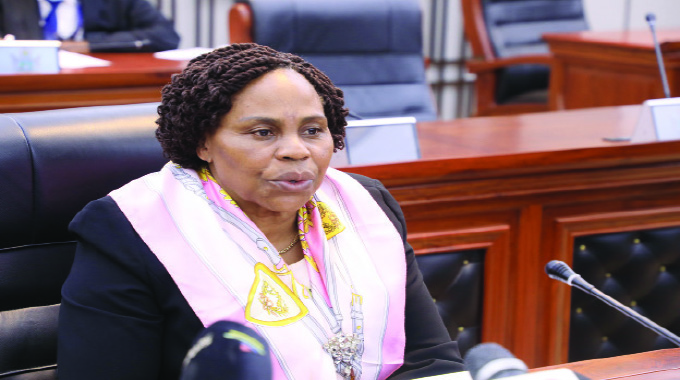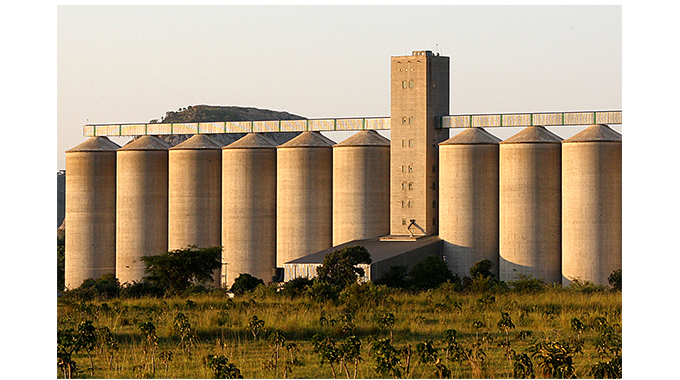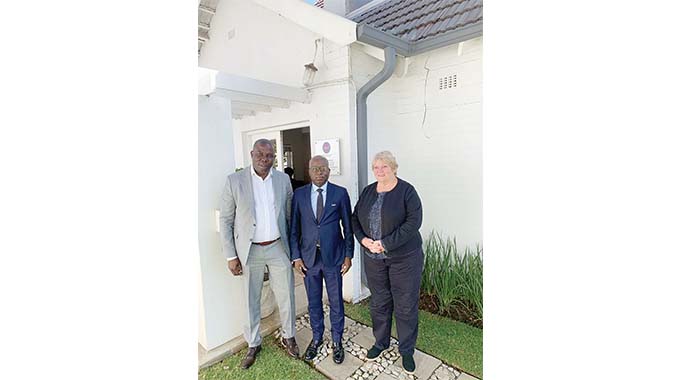Farmers get paid for grain deliveries to GMB

Nqobile Tshili, Chronicle Reporter
GOVERNMENT has paid US$2 million and $748 million to farmers who have delivered grain to the Grain Marketing Board (GMB) while paying school fees for 560 000 learners for vulnerable learners.
The country remains food secure with stocks of 20 626 metric tons (MT) while grain millers have concluded import contracts of 400 000mt with Malawi and Zambia.

Grain Marketing Board (GMB)
Briefing journalists during a post-Cabinet media briefing yesterday, Information, Publicity and Broadcasting Services Minister, Senator Monica Mutsvangwa, said grain valued ZW$1,8 billion and US$2,12 million has been delivered so far.
“The nation is further informed that it is anticipated that deliveries will peak around July to September, before declining in November. The grain millers have concluded import contracts of 400 000 MT from Malawi and Zambia. It has been indicated that Social Welfare will require 30 000 MT every month,” said Minister Mutsvangwa.
She also said Cabinet received and adopted the Zimbabwe Vulnerability Assessment Committee (ZimVAC) 2022 Rural Livelihoods Assessment Report, which spells out several Government interventions to the less privileged.
The report shows Government interventions on education, social protection, agriculture production, livestock, irrigation infrastructure, household income, child nutrition, water, sanitation and hygiene (wash), loans, household consumption patterns, food security, youth, development issues and shocks.
The minister said through the Basic Education Assistance Module (BEAM), the Government has paid school fees for more than half a million learners in line with its policy that education should be accessible for all.

Minister Monica Mutsvangwa
This year the country recorded a seven percent increase in the number of pupils attending school.
“In education, 83,8 percent of school-going children were in school compared to the 77 percent recorded in 2021. Government assisted 560 000 learners through the Basic Education Assistance Module (BEAM), and reiterates its standing policy that no learner should be turned away for non-payment of school fees,” said Minister Mutsvangwa.
She said the Government also continues to support the vulnerable through provision of food aid and food subsidies while also providing others with cash transfers as well as medical treatment orders.
Minister Mutsvangwa said the removal of restrictions on food importation on products such as maize and wheat, cooking oil, among other basic commodities, is part of Government efforts to cushion citizens from drought.
“Under social protection, 61 percent of rural households received some form of support, with Government accounting for 67 percent of the support rendered,” said Minister Mutsvangwa.
She said the report also noted that there has been an improvement in household food security situation, improved dietary following various measures employed by Government.
“The proportion of households in the acceptable category also increased from 29 percent in 2021 to 35 percent in 2022. Government has instituted programmes to address the country’s dietary situation, notably the Agriculture and Food Systems Strategy, which has, as one of its components, the establishment of a village and agribusiness hub garden,” she said.
Minister Mutsvangwa said the Government is also rehabilitating several irrigation schemes across the country to improve national food security.
A total of 394 irrigation schemes have been established in the various districts with 51 percent of them fully functional, 28 percent partly operational and 21 percent yet to operate.
“These include the National Accelerated Rehabilitation and Development Programme targeting the rehabilitation and development of at least 200 hectares in every district annually over a ten-year period,” she said.
“To date, 216 000 hectares including plantations are under irrigation of which 116 000 hectares are for cropping. The Government intends to increase the hectarage for cropping from 116 000 hectares to 350 000 hectares,” said Minister Mutsvangwa.
— @nqotshili








Comments